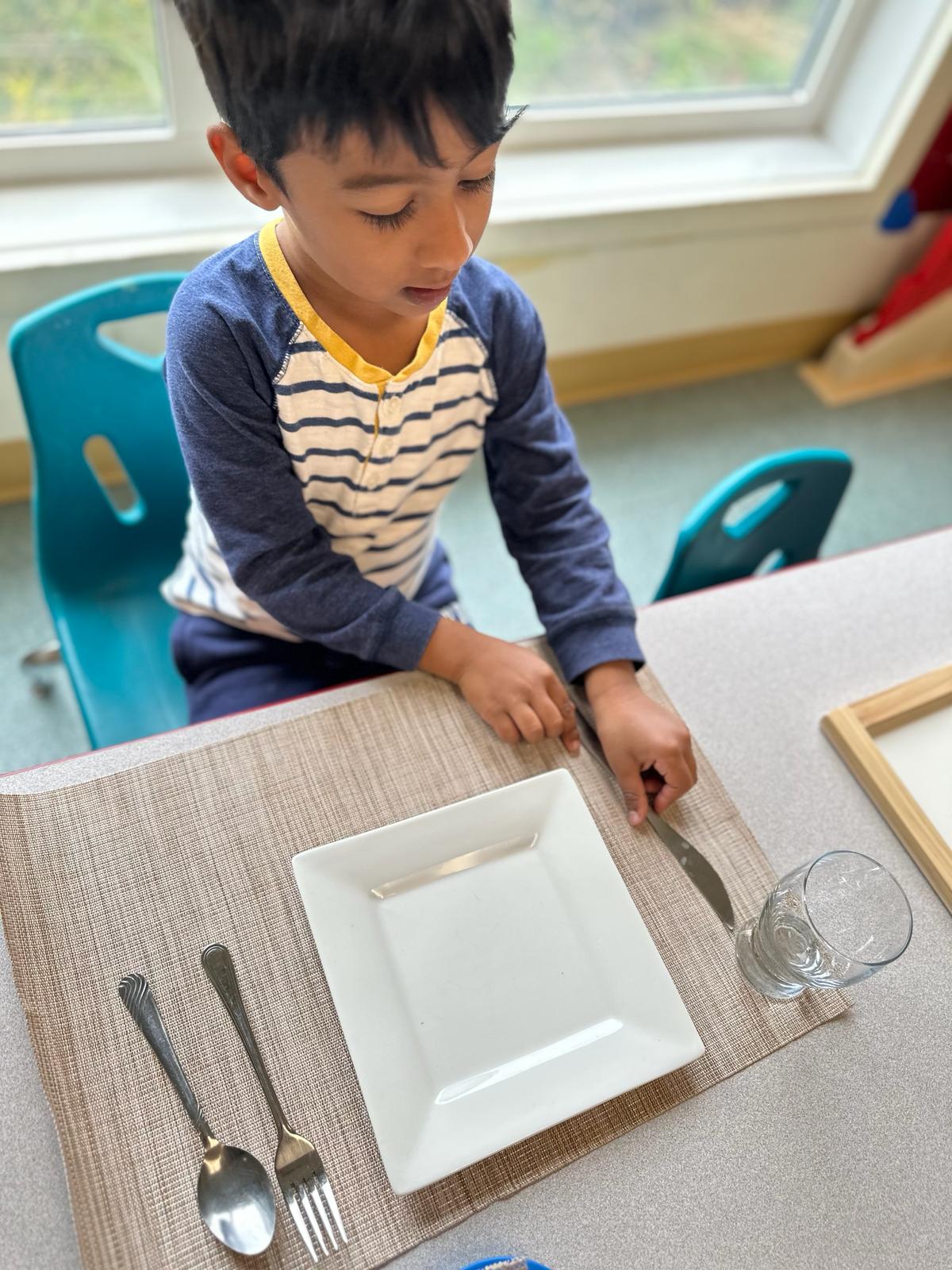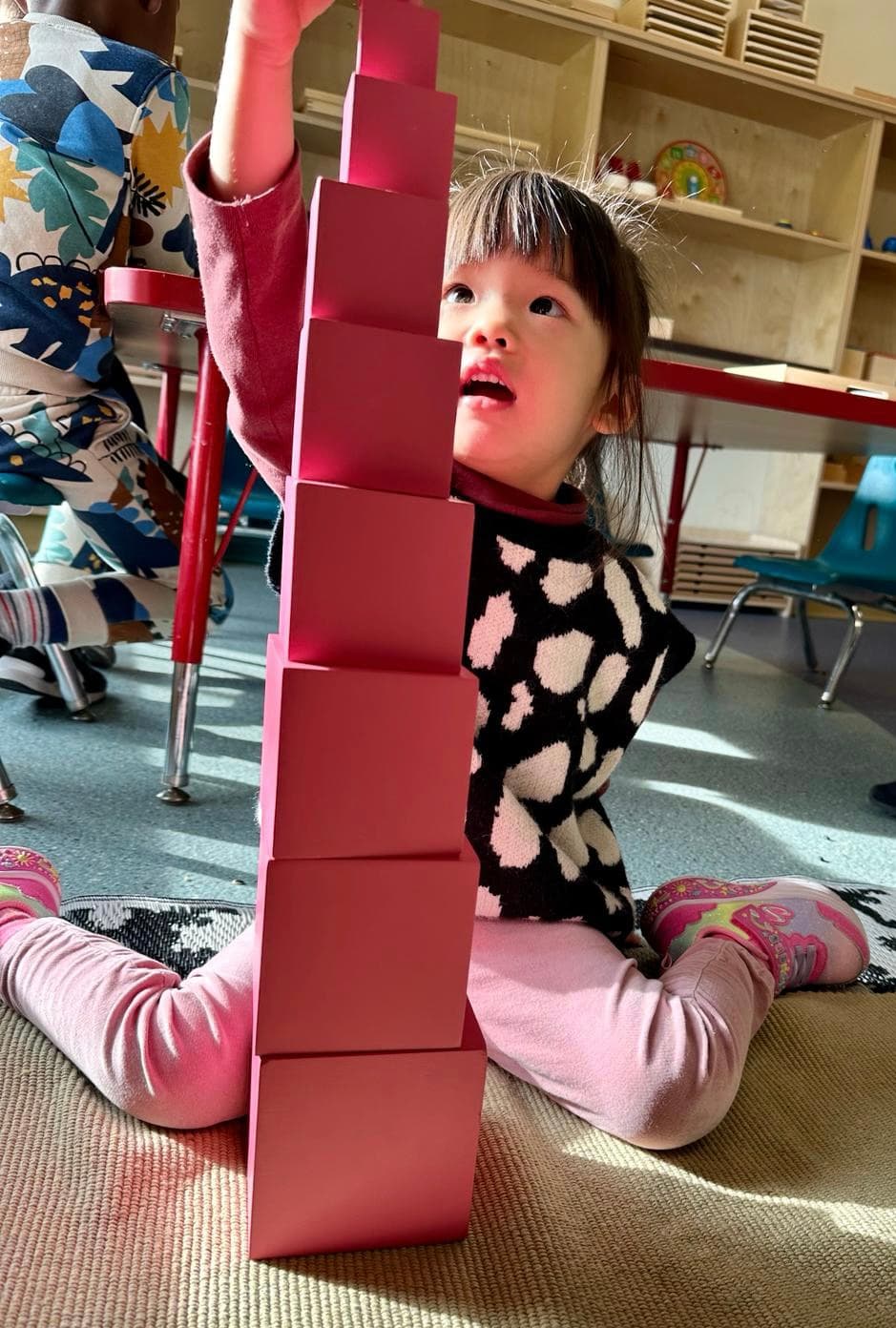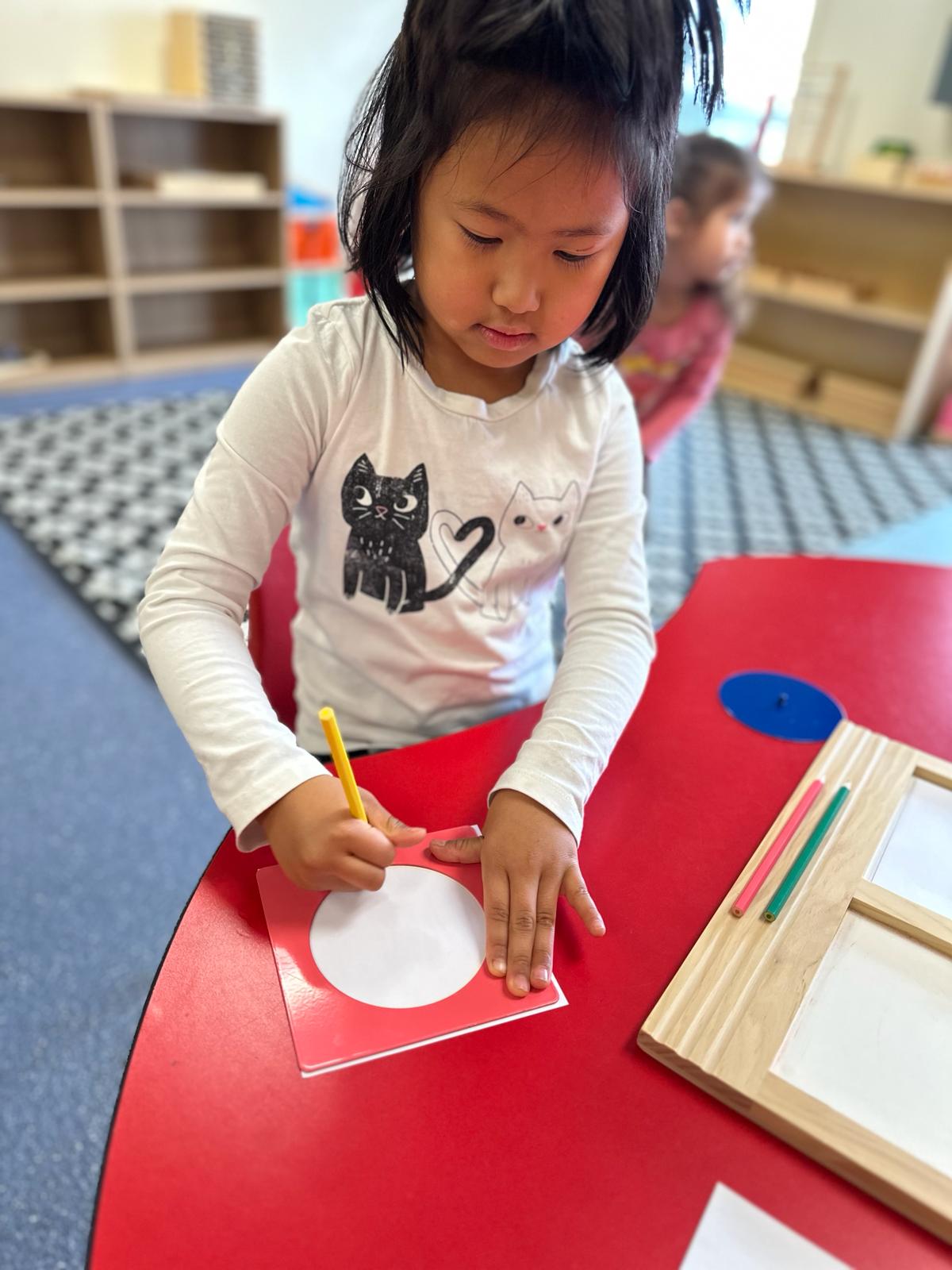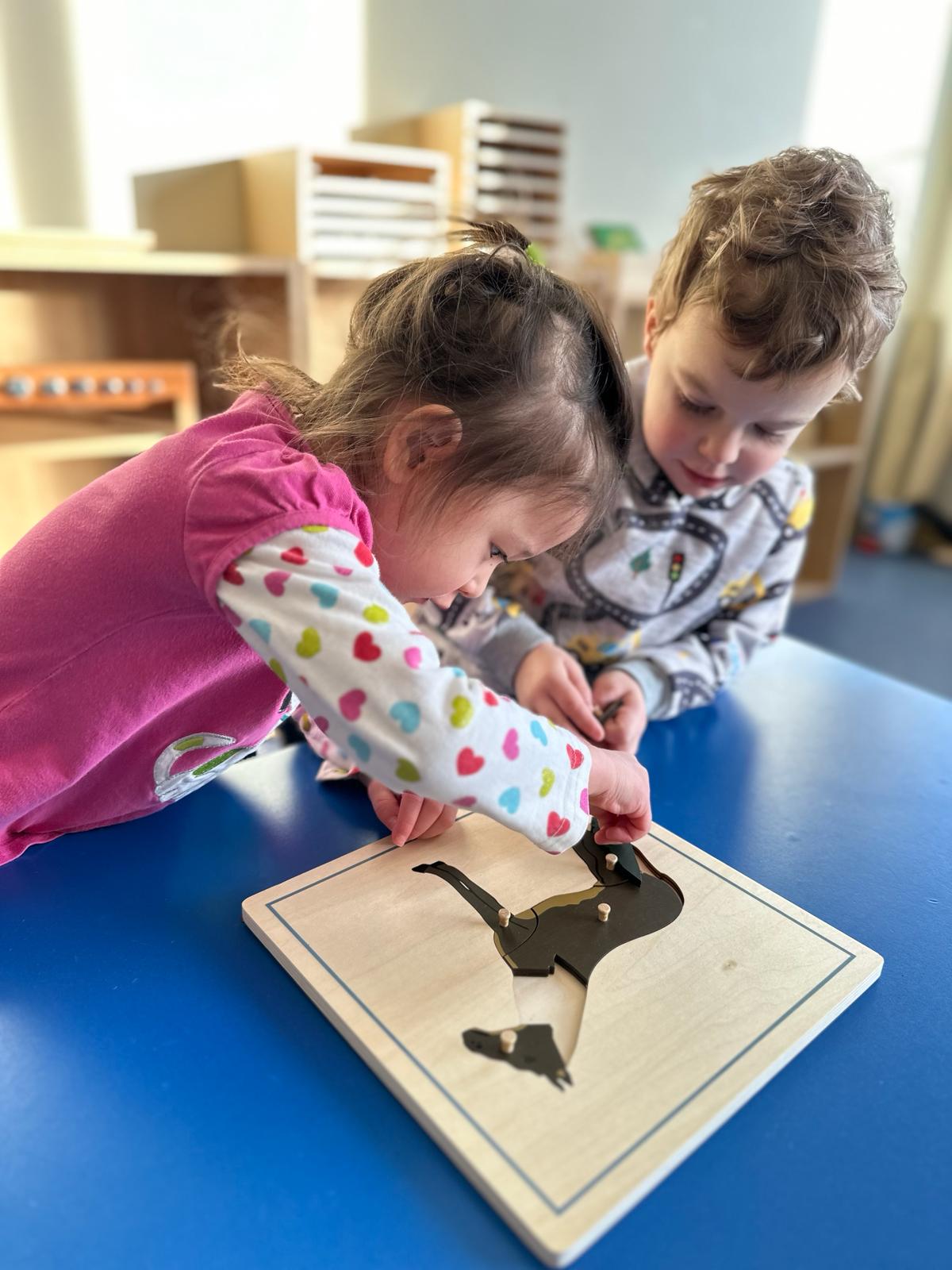Montessori Education at LHMA
The Montessori approach is an educational philosophy and method developed by Dr. Maria Montessori. It is centered on the belief that children are naturally curious, capable of self-directed learning, and have a unique potential for cognitive, emotional, and social development.

Unlocking Your Child's Potential with Montessori Education
At our daycares, we're committed to offering a holistic educational experience that nurtures your child's growth and curiosity. The Montessori method is at the heart of what we do, focusing on five key elements that play a pivotal role in your child's development. Let's explore these elements together:

Practical Life
Practical Life activities are fundamental to the Montessori approach, teaching children essential life skills and fostering independence. These activities include tasks such as pouring, buttoning, zipping, and setting a table.

Why Practical Life Matters: Practical Life activities are designed to enhance fine and gross motor skills, hand-eye coordination, and concentration. They also teach children how to care for themselves and their environment. These skills lay the foundation for future learning and are vital for daily living.

Sensory:
Sensory development is a core component of Montessori education. It emphasizes the importance of engaging a child's senses in the learning process. Montessori classrooms are equipped with materials that stimulate the senses of touch, sight, sound, taste, and smell.

Why Sensory Development Matters: Sensory experiences help children understand and process the world around them. It promotes cognitive growth, emotional regulation, and problem-solving skills. Sensory activities engage the child's whole being, making learning more meaningful.

Language:
The Montessori approach recognizes that language is central to learning. Language activities in Montessori classrooms encourage spoken language, reading, and writing. Children learn phonics, vocabulary, and reading comprehension through a carefully designed sequence of materials.
Why Language Development Matters: Strong language skills are crucial for communication and academic success. Montessori language activities enable children to become proficient readers and confident communicators, setting the stage for a lifetime of literacy and learning.

Math:
Montessori math activities are designed to help children understand abstract mathematical concepts through concrete experiences. They work with specialized materials, such as the Number Rods and Spindle Boxes, to explore number sense, operations, and geometry.

Why Math Development Matters: Mathematical thinking is a cornerstone of intellectual development. Montessori math materials provide a solid foundation for mathematical concepts, fostering problem-solving, logical thinking, and a love for numbers.

Culture:
Cultural education in Montessori extends beyond geography and history. It introduces children to various aspects of the world, including science, botany, zoology, and cultural diversity. Children explore concepts like the parts of a flower, landforms, and world cultures.

Why Cultural Education Matters: Cultural education broadens children's horizons and instills a sense of wonder and respect for the world. It encourages curiosity and a lifelong appreciation of diverse cultures, nature, and the interconnectedness of all life.
- 1. Child-Centered Learning: The approach focuses on the child's interests and needs, allowing them to choose their activities and learn at their own pace.
- 2. Mixed-Age Classrooms: Montessori classrooms often have mixed-age groups, allowing younger children to learn from older peers and vice versa.
- 3. Hands-On Learning: Learning materials in Montessori classrooms are designed to be hands-on and self-correcting, promoting independent exploration.
- 4. Freedom within Limits: Children have a degree of freedom to choose activities, but they also learn to respect boundaries and engage in tasks that foster responsibility.
- 5. Respect for the Child: Montessori educators deeply respect the individuality of each child and aim to nurture their physical, intellectual, emotional, and social development.
- 6. Uninterrupted Work Periods: Extended, uninterrupted work periods allow children to immerse themselves in tasks, promoting concentration and problem-solving skills.
- 7. Prepared Environment: Montessori classrooms are carefully designed to provide a rich, stimulating, and orderly environment that encourages exploration and discovery.
Other key principles of the Montessori approach include:
The Montessori approach has been widely adopted in early childhood education but can extend into elementary and even secondary education. It emphasizes holistic development and a love for learning, fostering independence, critical thinking, and a strong sense of self.